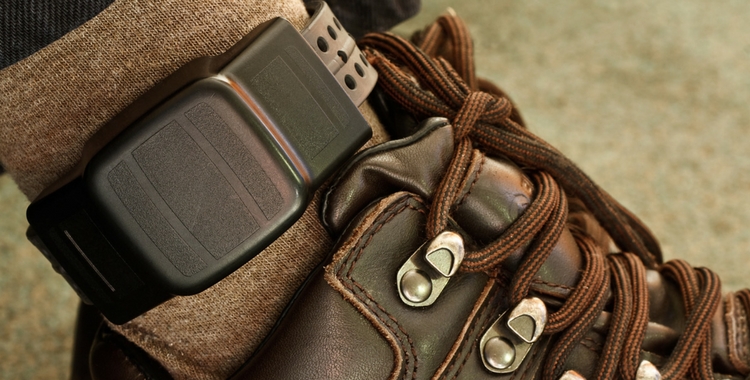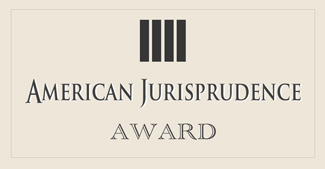
Have You Violated Your Probation in Utah?
As a probationer, it’s important to understand the terms of your probation and the consequences of violating them. If you have violated your probation in Utah, it’s crucial to seek legal guidance from a criminal defense attorney immediately. A probation violation can result in severe penalties, including revocation of probation privileges, heavy fines, and even imprisonment.
We understand the complexity of probation violation cases and have the expertise to guide you through the Utah legal process. We are committed to protecting your rights and helping you achieve the best possible outcome.
Contact the Wasatch Defense Lawyers Today and Schedule a Free Probation Violation Consultation in Downtown Salt Lake City, Utah
What is Probation?
If you receive a criminal conviction in Utah, your sentence may include probation. What does this mean? In general, if you are on probation, you don’t serve your sentence in a jail cell. Instead, you are released to go home but must adhere to certain restrictions or conditions. These rules or guidelines are the conditions of your probation.
Supervised Probation vs. Unsupervised Probation
What is the Difference Between Supervised Probation and Unsupervised Probation?
Supervised probation and unsupervised probation are two types of probation that a court may impose as a punishment for a criminal conviction. The main difference between the two is the level of supervision and oversight provided to the probationer.
Supervised probation means that the probationer is required to regularly meet with a probation officer and comply with the conditions of their probation. The probation officer will monitor the probationer’s compliance with the terms of their probation, such as drug testing, community service, and attending counseling or therapy sessions.
Unsupervised probation, on the other hand, does not require regular check-ins with a probation officer. Instead, the probationer is expected to abide by the conditions of their probation without direct supervision. This type of probation is generally granted to those who have committed minor offenses and do not pose a significant risk of reoffending.
It is important for probationers to understand the terms of their probation and the level of supervision that they will be subject to. Violating the terms of probation can result in serious consequences, including revocation of probation and imprisonment. Therefore, it is crucial for probationers to comply with the conditions of their probation and seek guidance from their probation officer if they have any questions or concerns.
What is the Difference Between Probation and Parole?
Probation differs from parole. People who are paroled serve a portion of their sentence incarcerated. However, probation does not typically include time in prison or jail.
Probation and parole are both forms of community supervision, but there major between the two. Probation is a period of community supervision ordered by a judge as an alternative to incarceration. It is typically given to individuals who are convicted of a crime but are not sentenced to jail or prison. Probation often has specific terms and conditions, such as regular check-ins with a probation officer, drug testing, and community service.
Parole, on the other hand, is a form of early release from prison. It is granted to inmates who have served a portion of their sentence and have demonstrated good behavior while incarcerated. Like probation, parole comes with specific terms and conditions that the individual must follow, such as meeting regularly with a parole officer, maintaining employment, and avoiding any further criminal activity. While probation is a form of supervision that is ordered by a judge, parole is a privilege granted by a parole board.
Here are a few conditions often associated with probation:
- You may have to meet with a probation officer at designated times.
- You may have to adhere to a curfew.
- You may have to remain in a designated area or within a certain proximity to your home or place of employment.
- You may have to attend counseling or participate in a court-ordered treatment program.
- You may have to submit to regular drug testing.
If you fail to adhere to the conditions of your probation agreement, you could be charged with a probation violation and may be forced to serve the remainder of your sentence in a jail cell.
What is Probation Violation?
Probation permits you to enjoy some degree of freedom. However, you are still required to adhere to the terms of your probation. If you do not comply with the requirements of your probation agreement, you are in violation. A probationary period usually lasts between one and three years, but it can vary based on the severity of the crime for which you were convicted.
It’s crucial to take your probation terms seriously and comply with all the conditions imposed by the court to avoid facing further legal trouble. If you have questions about your probation terms or are struggling to meet them, contact your probation officer or an attorney for guidance.
Violating the Terms of Your Probation Could Lead to Severe Consequences
Here are few actions that could result in a probation violation:
- Failure to appear in court at the designated time and date
- Failing to pay a court-ordered fine or restitution amount
- Traveling outside of the area indicated in your probation agreement without your probation officer’s permission
- Missing a scheduled meeting with your probation officer
- Distributing, using or being in possession of illegal drugs
- Being arrested for committing additional offenses
- Not completing mandatory community service or rehabilitation programs
- Possession of a firearm
- Associating with known criminals
What Happens if You Violate Your Probation?
When you violate your probation agreement, there are multiple actions that the court can take, including the following:
- A warrant can be issued for your arrest.
- Your probationary terms can be modified to include more stringent restrictions.
- Your probation could be revoked, and you could be sent to jail or prison.
Nevertheless, before the court determines that you have violated your probation, you are given the opportunity to counter the allegations against you during a hearing. When you appear at the hearing, you can agree with or deny the accusations. If you do not agree with the allegations, prosecuting attorneys will submit evidence that you violated your probationary terms. At the end of the hearing, the court makes its determination.
Don’t Wait To Get Legal Representation – Call to Schedule a Free Case Review Appointment with a Probation Violation Attorney In Salt Lake City, Utah
If you are being charged with violating your probation in Utah, you only have a limited period in which to obtain legal representation. You need to be defended by experienced legal professionals. At Wasatch Defense Lawyers, we can offer you the experience and expertise needed for a proper defense. To speak with one of our award-winning criminal defense lawyers in Utah, call the Wasatch Defense Lawyers to schedule a free probation case review in downtown Salt Lake City, Utah.
- Downtown
- Rio Grande
- Central City
- Lower Avenues
- Upper Avenues
- Poplar Grove
- Rose Park
- East Central
- Federal Heights
- Fairpark
- Capitol Hill
- Ballpark
- Yalecrest
- Liberty Wells
- Marmalade
- Windsor Place
- University
- Sunnyside East



